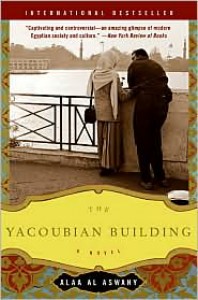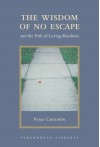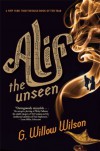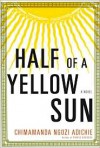Currently reading
The Wisdom of No Escape: And the Path of Loving-Kindness
River of Smoke: A Novel
Alif the Unseen
Half of a Yellow Sun
Taoist Qigong for Health and Vitality: A Complete Program of Movement, Meditation, and Healing Sounds
Sea of Poppies
AyurVeda: The Science of Self-Healing
Medicine Buddha Teachings
Tibetan Book of Living and Dying: The Spiritual Classic and International Bestseller
The Fault in Our Stars
The Yacoubian Building
 First this is really a 3.5 star book.I found my self a bit flummoxed by this book as I started. This was in no fault of the book or Al Aswany, but do to my own ignorance of the history of Egypt. This made the expository business of world building very difficult for me to grasp, as there is some degree of a basic understanding of Egyptian culture. But a few visits to Wikipedia and a few other web searches it made far more sense. Though it also became readily apparent that I have some serious holes in my history knowledge. This needs to be fixed.But once Al Aswany set up the characters and situations everything became so much easier to follow along with. But then there was the hammer of misogyny that seemed to be swung though out most of the narrative, so much that at times it seemed to knock over characters in other books I've read. I started to worry that this was Al Aswany rather than his chronicling the corrosive rejection of females in Egypt. And it nearly made me stop reading, but it was not present in every narrative and shown to be just an affect worn by nearly everyone in Al Aswany's Egypt.I forced my self to see this as a critique. But it was very hard to take.This is a novel about a city. He uses the Yacoibian building to present a cross section of all who live in Cario. And as others have written, even though this was written more than a decade before last year's awakening, it vividly highlights how it would have been impossible not to happen. One does not so much live a life as life in corruption in this novel. And it is a place where sin can easily be tolerated when it is taxed though bribes and the like. In fact Al Aswany makes his characters seem almost to be aquatic, only rather than water they exist in a liquefied corruption state.I would love to say his characters are fully formed and not really stereotypical, but that is not always the case. But he clearly favors those he develops most.If you are interested in having a better grasp on what the initial sparks that set off last year's revolution and why so much of Egypt is still fighting today for a proper free democracy, this seems like a good place to start. Though I warn you, the stench of boiled misogamy wafts off most pages so strong, it is often hard to see anything but it.
First this is really a 3.5 star book.I found my self a bit flummoxed by this book as I started. This was in no fault of the book or Al Aswany, but do to my own ignorance of the history of Egypt. This made the expository business of world building very difficult for me to grasp, as there is some degree of a basic understanding of Egyptian culture. But a few visits to Wikipedia and a few other web searches it made far more sense. Though it also became readily apparent that I have some serious holes in my history knowledge. This needs to be fixed.But once Al Aswany set up the characters and situations everything became so much easier to follow along with. But then there was the hammer of misogyny that seemed to be swung though out most of the narrative, so much that at times it seemed to knock over characters in other books I've read. I started to worry that this was Al Aswany rather than his chronicling the corrosive rejection of females in Egypt. And it nearly made me stop reading, but it was not present in every narrative and shown to be just an affect worn by nearly everyone in Al Aswany's Egypt.I forced my self to see this as a critique. But it was very hard to take.This is a novel about a city. He uses the Yacoibian building to present a cross section of all who live in Cario. And as others have written, even though this was written more than a decade before last year's awakening, it vividly highlights how it would have been impossible not to happen. One does not so much live a life as life in corruption in this novel. And it is a place where sin can easily be tolerated when it is taxed though bribes and the like. In fact Al Aswany makes his characters seem almost to be aquatic, only rather than water they exist in a liquefied corruption state.I would love to say his characters are fully formed and not really stereotypical, but that is not always the case. But he clearly favors those he develops most.If you are interested in having a better grasp on what the initial sparks that set off last year's revolution and why so much of Egypt is still fighting today for a proper free democracy, this seems like a good place to start. Though I warn you, the stench of boiled misogamy wafts off most pages so strong, it is often hard to see anything but it.












